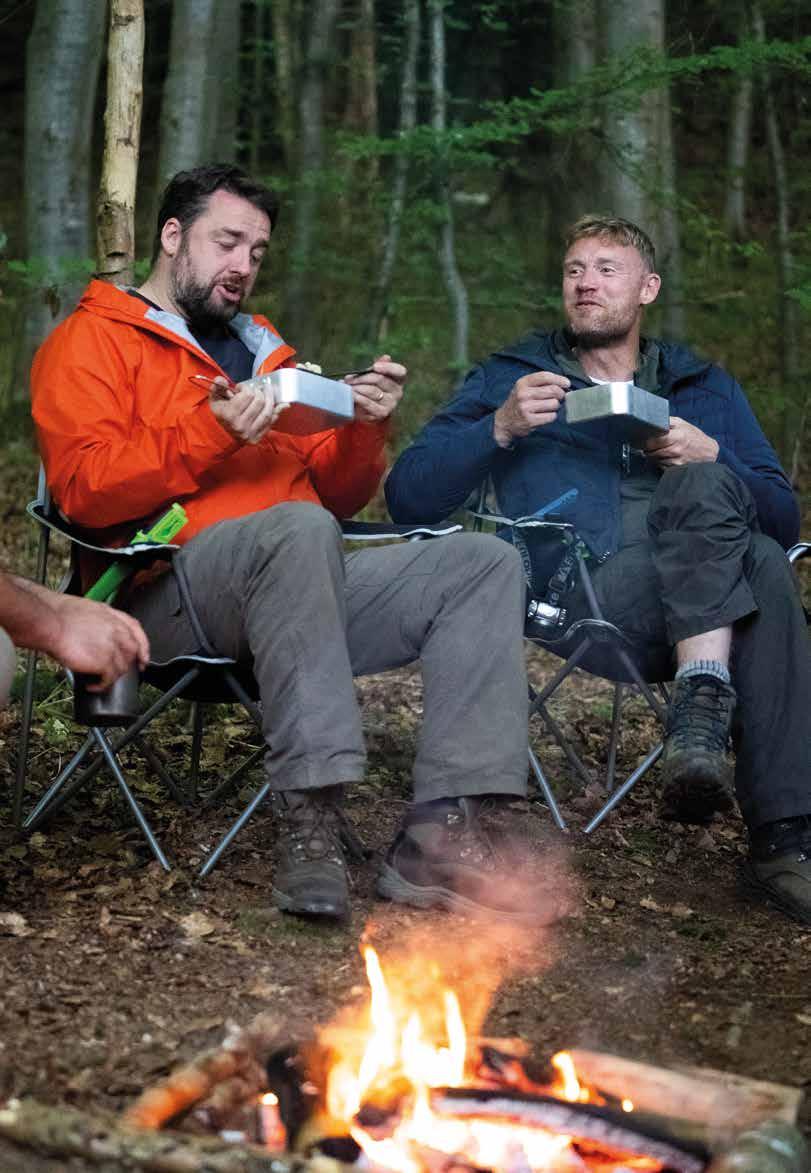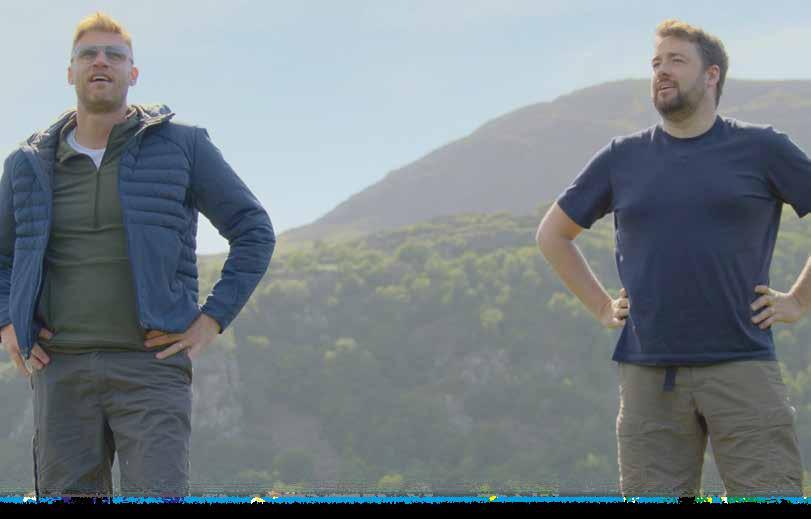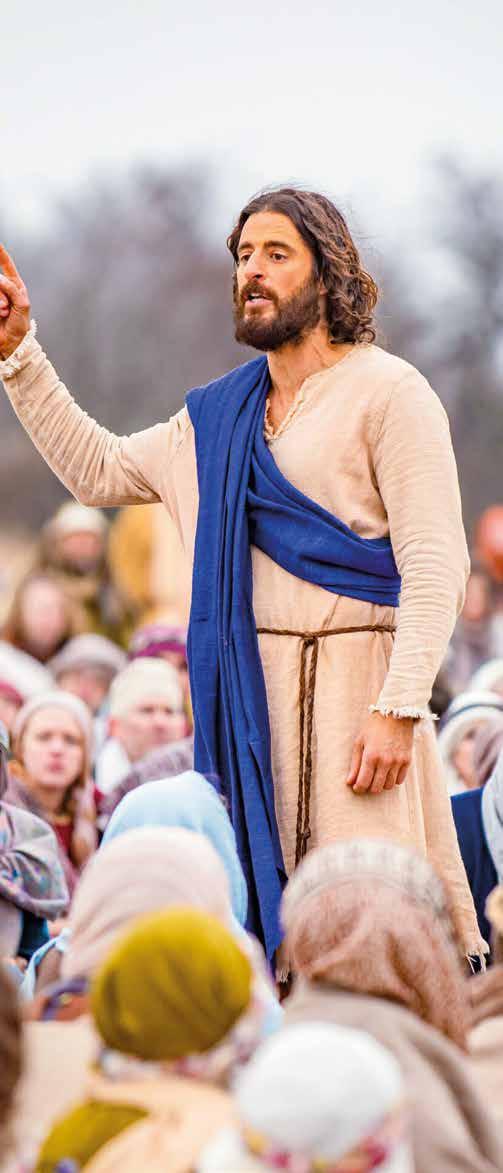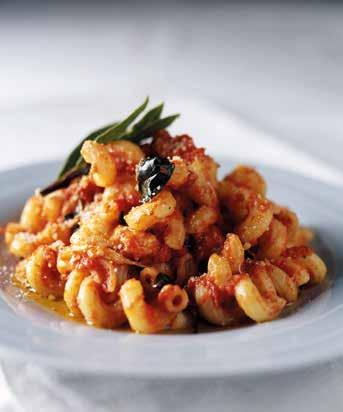Bible drama shows how ‘Jesus changed everything’







The Salvation Army is a Christian church and registered charity seeking to share the good news of Jesus and nurture committed followers of him. We also serve people without discrimination, care for creation and seek justice and reconciliation. We offer practical support and services in more than 700 centres throughout the UK. Go to salvationarmy.org.uk/find-a-church to find your nearest centre.
The Salvation Army first published a newspaper called the War Cry in London in December 1879, and we have continued to appear every week since then. Our name refers to our battle for people’s hearts and souls as we promote the positive impact of the Christian faith and The Salvation Army’s fight for greater social justice.
Issue No 7604
Editor: Andrew Stone, Major
Deputy Editor: Philip Halcrow
Production Editor: Ivan Radford
Assistant Editor: Sarah Olowofoyeku
Staff Writer: Emily Bright
Staff Writer: Claire Brine

Editorial Assistant: Linda McTurk
Graphic Designer: Rodney Kingston
Graphic Designer: Mark Knight

Email: warcry@salvationarmy.org.uk
The Salvation Army United Kingdom and Ireland Territory
101 Newington Causeway London SE1 6BN
Tel: 0845 634 0101
Subscriptions: 01933 445445 (option 1, option 1) or email: subscriptions@satcol.org
Founder: William Booth General: Brian Peddle
Territorial Commander: Commissioner Anthony Cotterill


Editor-in-Chief: Major Mal Davies
Published weekly by The Salvation Army © The Salvation Army United Kingdom and Ireland Territory ISSN 0043-0226
The Salvation Army Trust is a registered charity. The charity number in England, Wales and Northern Ireland is 214779, in Scotland SC009359 and in the Republic of Ireland CHY6399.

Printed by CKN Print, Northampton, on sustainably sourced paper
PEOPLE, it would appear, are still fascinated by the life of Jesus more than 2,000 years after he was born.
As we report in this week’s War Cry, the 1979 film Jesus has now been translated into 2,000 languages. Meanwhile The Chosen, a more recent portrayal of the life of Jesus, has had more than 400 million views worldwide.

In an interview in this week’s issue, Liz Tabish, who plays Mary Magdalene in The Chosen, says she believes the TV drama depicts Jesus ‘as he was, his real message, and the impact that it had on his followers and the masses’.
Liz also explains how the show’s portrayal of those followers has helped its success. ‘It’s not sanitised,’ she tells us. ‘It’s not one-dimensional. We’re playing real people who really existed, who had real personalities and problems.’
Followers of Jesus today are the same. Their lives consist of joy and happiness but also difficult times, such as when they are hurt by others. In those situations they know that Jesus’ would encourage them to forgive the people who have hurt them.
Forgiveness is a topic Marina Cantacuzino knows a lot about as she has spent 20 years speaking to people who have faced great pain and injustice but who have chosen to forgive those who have done them wrong.
Forgiving somebody may seem a difficult thing to do, but in an interview in this week’s issue, Marina explains how the act of forgiveness helps the person who was originally wronged.
‘Many of the people I’ve interviewed talk about being consumed by pain,’ she says. ‘But, when they forgive the person who hurt them, that act of forgiving takes the sting out of the memory.’
When Jesus encouraged his followers to forgive others, it was something he knew would help them.
Although it is not easy to do, perhaps it is something we could try with the hurts that we sometimes experience and then we’ll see what impact it has on us.

Jason confesses: ‘Sleeping in a tent overnight is my idea of hell… I am very much happy camped out on the sofa with a nice takeaway.’ Unperturbed by Jason’s lack of enthusiasm, Freddie encourages him to join him and climb to the top of Snowdon, the highest mountain in Wales. The adventure will push Jason beyond the boundaries of his comfort zone.
They try out wild camping in an off-road adventure which involves sleeping on cliff-edge canvases, foraging in forests, catching lobsters for dinner on a Welsh trawler, and trying their



hand at shepherding with chaotic results. They also dip into the bracingly cold waters of Llyn Padarn, one of Wales’ largest lakes, for a spot of wild swimming, take a steam train up the mountainside and bike through Snowdonia National Park.
As Jason embraces the new experiences on offer, Freddie says to camera: ‘I think it just shows what options are out there that you never thought were for you, but when you do them you actually enjoy them.’
Just as for Jason the prospect of playing safe can seem appealing, we may also prefer to stick to what we know and trust. But often life is about embracing the unexpected, and trying something new can lead us on an adventure we would never have imagined we would have had.
That was certainly true for a man called David who lived thousands of years ago. In the Bible we can read how he embraced new directions in his life and how those adventures led him from working as a shepherd outside in the fields to becoming a king in a palace.
Throughout those adventures, David was guided by God and he relied on him for everything, in good times and bad. David knew what impact a relationship with God could have on a person’s life. In the Bible, he encourages others to put their trust in God, saying: ‘Taste and see that the Lord is good. Oh, the joys of those who take refuge in him!’ (Psalm 34:8 New Living Translation).
Jason has a go at bringing in lobster pots
Exploring a relationship with God will set us on the greatest adventure we can ever go on. Whatever we may face, we’ll be shepherded through life by the creator of the universe. To those who seek him, God provides a refuge and shelter in tough times. If we ask him to, he will sustain and encourage us with his love and strength. All we have to do is invite him into our lives and we’ll never have to walk alone.

SALLY PHILLIPS has spoken of how praying with co-host and fellow Christian Sean Fletcher before presenting BBC1’s Sunday Morning Live had encouraged her.



Talking to Sean for a Songs of Praise episode about faith and friendship, Sally said: ‘If there is someone to pray with, it’s so amazing, because you just end up with a much more authentic relationship… You completely take your eyes off yourself, and it just felt like a really good way of facing the right way before you go into the show.’

PEOPLE struggling with the cost of living are being supported by The Salvation Army through various initiatives across the country.
Its church in Ripley runs a food bank twice a week and supports a group that supplies regular food parcels and household goods to young adults and families in or leaving the care system. A Christmas campaign will provide food and toys for vulnerable families.
The Salvation Army’s Devonport Morice Town church in Plymouth has opened a community café, run by volunteers, to support residents by welcoming them into a warm place for free and selling affordable hot drinks and cakes. It will also offer weekly debt counselling and advice sessions. In Essex, The Salvation Army has launched its Employment Plus service, which helps people to find work.

nA FILM about Jesus has had its 2,000th translation from English into another language.
Jesus, which is the most translated film of all time, has been translated into Zo, a language spoken by around 65,000 people across the world, including refugee and immigrant communities in 28 cities in the US. The language is primarily spoken in Myanmar, where people face religious persecution.
The drama, first released in 1979, stars Brian Deacon and tells the story of Jesus, based on the account of his life in Luke’s Gospel. By 1999, it had been translated into 500 languages and had more than one billion viewings.
MORE than seven million people have had contact with church community action programmes, a study commissioned by the Church of England suggests.
A Savanta ComRes poll found that a third of those who had contact with their local church have done so through community programmes such as food banks, lunch clubs and parent toddler groups.
Almost half (47 per cent) of those asked agreed that the local church is an important part of their community. The poll surveyed 2,073 UK adults in July this year.
Church of England statistics from 2019 suggest that its churches run or support 35,000 social action projects, including 8,000 food banks, more than 4,000 parent or carer toddler groups and more than 5,000 lunch clubs, coffee mornings or hospitality for older people.

The Right Rev Paul Butler, the Bishop of Durham who speaks for the bishops in the House of Lords on welfare issues, said: ‘These figures show the extent to which the Church of England is providing not just spiritual and pastoral support but practical help to communities throughout the country.’
IN an interview for The Guardian, Shirley Ballas revealed the importance of faith in her life. The head judge of BBC1’s Strictly Come Dancing said: ‘I’m a Christian, so I believe in God. I read the Bible when I have time, though I don’t get to church very often, and I feel guilty when I can’t. Faith is a personal thing; I feel blessed to have that spirit with me.’
She added that having faith helped after her brother took his own life in 2003.
‘When my brother, David, died … my faith helped me to find a road to recovery, the road to a higher end,’ she said.
ALBUMS, singles and artists that have hit the right note will be recognised at the 25th annual Mobo awards ceremony in London on Wednesday (30 November).
The organisation Mobo has celebrated music of Black origin since its inception and the awards acknowledge the culture-defining and muchloved sounds of those who create work within the genres of hip hop, grime, R&B, soul, reggae, jazz and gospel.
Past winners, pioneers in the industry and promising stars will attend the ceremony to cheer one another on.
Nominees this year include Mercury prize-winning rapper Little Simz and R&B singer Ella Mai. Mobo has also welcomed two new categories, in acknowledgment of the ‘breadth and depth of music of Black origin’: best alternative music act and best dance/electronic act, recognising the influences of black people in genres such as jungle, drum and bass, house and disco.
On the announcement of the nominations, Kanya King, founder of the music organisation, said: ‘It’s a proud moment to see Mobo once again recognise and honour the luminaries and tip the stars of the future. This is what it means when we say “honouring the past, inspiring the future”.’

Acknowledging people who have gone before us is important. We can learn from and be inspired by them. Their mistakes can show us what not to do, and their success can give us a boost to go on and perform even greater feats.
In the Bible, one writer presents his own awards ceremony of sorts. Known as the faith hall of fame, it lists several people who had faith in tough circumstances and were commended for it.
‘We are surrounded by a great cloud of people,’ the writer says, ‘whose lives tells us what faith means. So let us run the race that is before us and never give up’ (Hebrews 12:1 New Century Version).
If we choose to go on a journey of faith, we can rest assured that we don’t have to take those steps alone. Through people in the Bible and those around us who have more experience, we can find encouragement and help to keep going. Sound good?
awards tip the stars of the futureFeature by Sarah Olowofoyeku Mobo founder Kanya King is proud of this year’s nominations JONATHAN WILLIAMS

‘FORGIVENESS is often extremely powerful in transforming people’s pain,’ says Marina Cantacuzino, a journalist who has spent the past 20 years collecting stories from individuals who, in the face of human atrocity, have chosen to forgive rather than seek revenge.
‘The act of forgiveness is about making peace with the things you cannot change, but that’s not the whole story, because forgiving is about more than letting go and accepting. It requires people to have a degree of empathy for the person who has harmed them – and that may not always feel like the right response initially.’
In 2003, when news of the Iraq war made headlines, Marina began to question the purpose of the conflict and the reasons why so many people appeared to support it.
‘I saw the war as an act of revenge for the terrorist attacks of 9/11, but it just didn’t make sense to me,’ she says. ‘I was convinced that the harder you come down on a group of people, the more they would re-emerge even angrier. I became interested in these ideas of payback and revenge, and so I thought: why don’t I explore the counter-narrative and look at the stories of people who have experienced atrocity, violence and crime, yet sought peaceful solutions?
‘I chose to focus on forgiveness, in particular, because it seemed so extreme and I knew the subject would grab attention.’
When word got out that Marina was seeking real-life stories of forgiveness, countless people stepped forward to share their experiences with her. Some spoke about the freedom they had found in forgiving the people who had hurt them. Others described how powerful it was to be on the receiving end of forgiveness.
‘A lot of the storytellers were determined to share their narrative of a more compassionate world,’ she says. ‘The following year, I put their stories into an exhibition held at the Oxo Gallery in London called The F Word: Stories of Forgiveness. It was very successful and many of the storytellers encouraged me to keep going with it. So, when the exhibition finished, I started
For a Radio 4 series, Marina has interviewed many individuals who have forgiven others

a charity called the Forgiveness Project, which is a platform for people to share real-life stories that heal, restore and humanise. We work in prisons and provide resources for schools and stage events that open up the conversation around forgiveness.’
Earlier this year, Marina wrote a book called Forgiveness: An Exploration in which she celebrates the power of forgiving others, while also highlighting the difficulties.
‘Pain is often a great motivator to forgive,’ she tells me. ‘Many of the people I’ve interviewed talk about being consumed by pain, but, when they
forgive the person who hurt them, that act of forgiving takes the sting out of the memory. In my book I include the story of Figen Murray, whose son was killed in the Manchester Arena bombing in 2017. She forgave the suicide bomber, explaining publicly that she needed to demonstrate the values that were so obviously lacking on the day that her son was killed.
‘When I listen to Figen, I understand her point. There are people who don’t want to be part of the world of division, hatred and revenge. Forgiveness can be a part of self-healing.’ Although many people find relief in forgiving others, it’s rarely an easy choice to make. Sometimes people
suffer for years before they can begin to contemplate forgiving the perpetrators of their pain.
‘One of the main reasons that prompts people to forgive is that they have tried everything else to deal with their hurt,’ says Marina. ‘They may have turned to self-harm, medication, acts of revenge, retreating into silence – and these things can go on for a long time. But then, for whatever reason, they are prompted to explore forgiveness, and it frequently works, because it gives people another perspective. It brings meaning back into their life.
‘Though forgiveness is often a longterm process and a movable feast –
Forgiveness gives people another perspective
From page 7
meaning you might forgive one day, but then struggle to do so the next day – I have occasionally met people who have forgiven instantaneously and instinctively. When Shad Ali was beaten up in a racist attack in Nottingham, he woke up in hospital very severely injured, yet said he felt an overwhelming peace. He begged his friends not to seek revenge on his attacker, because he said that he couldn’t conceive putting more violence into the world. Forgiveness, he told me, had come to him in an instant and never left him.’
Although Shad couldn’t explain where his desire to forgive his attacker had come from, Marina has encountered many individuals who felt inspired to forgive by their faith. Earlier this year, on her Radio 4 series Forgiveness: Stories from the Front Line, she interviewed Father Michael Lapsley. An anti-apartheid campaigner, Michael was a priest living in exile in Zimbabwe when, in 1990, he lost both his hands after receiving a letter bomb.
‘Father Michael is a man of such deep faith,’ Marina tells me. ‘And within Christianity, forgiveness is a core principle. But he also understands that it can be a very difficult thing to do. Therefore he feels that church leaders shouldn’t preach it in too heavy-handed a way. Forgiveness
shouldn’t be an obligation just because a priest has said so.’
Her comments prompt me to address the teachings on forgiveness in the Bible, and how Jesus urged his followers to forgive people 77 times for their wrongdoing. It’s a passage in the New Testament with which Marina is familiar, but we both note that Jesus makes no mention of how swiftly forgiveness must be bestowed. Could it be that he understands that forgiveness takes some people longer than others? Exploring such questions from the angle of faith intrigues Marina.
‘The stories of Christians who have forgiven inspire me,’ she says. ‘They have helped me to understand forgiveness at a deeper level. Grace, for instance, is such an interesting concept and seems to be something that can help you make sense of life after being severely hurt. I interviewed one Christian woman who told me that, after she forgave, grace filled the cracks. I liked that.
‘But ultimately it’s hard to pinpoint exactly where forgiveness comes from. Some people have told me that their ability to forgive has been a gift from God – it’s something that has happened to them. Others feel that forgiveness is what they chose to do when all else failed.’
After exploring other subjects closely
associated with forgiveness, such as repentance and redemption, Marina concludes her book with a chapter entitled ‘The Mechanics of Forgiving’. In it, she outlines what she believes are the ‘key components’ to establishing a forgiving attitude.


‘That chapter is not a how-to guide,’ she says, ‘but I am looking at what it takes to forgive. The first thing people often need is curiosity. An enquiring mind – being interested in others’ experiences rather than just our own – can result in a shift of perspective, and that, in turn, may lead to empathy. Walking in someone else’s shoes might be difficult, but it can take people to a place of releasing resentment or their desire for revenge. And after that, they can begin to move towards meaning-making, where it’s possible to find purpose for life again.
‘Forgiveness, I have discovered, is rarely a single place you arrive at, but an incredible journey of generosity, kindness and compassion that makes the world a better place.’
l Forgiveness: An Exploration is published by
 Simon and Schuster
Simon and Schuster
It’s hard to pinpoint where forgiveness comesAn illustration featured in ‘Forgiveness is Really Strange’, a book co-written by Marina and psychology lecturer Dr Masi Noor
MARY MAGDALENE is known as a woman who was living a deeply troubled life when Jesus met her. Yet she was at the foot of the cross when he died and was one of the first of Jesus’ followers to discover his resurrection. Mary’s remarkable transformation and witnessing of these world-changing events are now being reimagined in the TV series The Chosen.
Inspired by Gospel accounts, the US show that sees Jesus through the eyes of his followers has had more than 400 million views worldwide. It plans to run for seven series, leading up to and including Jesus’ death and resurrection.

In the first series – which can still be viewed on the show’s own app – The Chosen creatively retold how Jesus
and Mary Magdalene met, and how he delivered her from her demons.
‘I think the portrayal of her in The Chosen is so relevant because everyone relates to her,’ Liz Tabish, who plays Mary Magdalene, tells me. ‘Everyone who has reached out has mentioned, “I’ve been her, I’ve been in a state of despair”, and relates to this before-and-after experience of Jesus having transformed their life.
‘The writers did a lovely job of making her not so black and white, not so good or evil, just a person. And she’s dealing with some really heavy things. In season two, she even goes back to her old vices.’
Liz is referring to fictionalised scenes where Mary Magdalene, overwhelmed by past trauma, relapses into addiction and returns to the drinking and gambling dens that she frequented before meeting Jesus.

He is concerned for her wellbeing, so dispatches his disciples to bring her home. Ashamed, Mary struggles to face him. But Jesus gently tells her that he doesn’t expect her to be perfect and that he just wants her heart, however flawed and messy it is.
‘She’s a representation of the idea that no matter what, you’re still loved,’ says Liz. ‘Jesus still loves you. I think that’s what’s clicking for everyone: she is still loved and I can be too.’
Liz believes that depicting the humanity of Jesus’ followers is behind the success of the show. ‘It’s not sanitised,’ says Liz. ‘It’s not onedimensional. We’re playing real people who really existed, who had real
personalities and problems.
‘Sometimes the way these stories are portrayed seems clean and done like a magic trick. But you see in The Chosen what transformation looks like for these characters and what Jesus’ message looks like in action. People see themselves in these characters because we’re all messy in the show, except Jesus. Before the disciples were saints, they were people.’
The Chosen is resonating not only with audiences, but with the actors too. Liz says that, while she was raised as a Christian, she was ‘really cynical and sceptical about religion for some time’ and stepped back from her faith. But since joining The Chosen’s cast, she has rebuilt her relationship with Jesus.
‘This show has opened my eyes,’ she says. ‘I’ve returned to the Gospels and what Jesus was actually teaching and doing. And it’s so much cooler and better than the way people might think it was.
‘The reality of these miracles, the reality of his love, is so overwhelming and
beautiful. I think I’m finally able to see Jesus as he was, his real message, and the impact that it had on his followers and the masses. The Chosen also portrays the political, social and cultural background to how everything happened.’
A popular misconception of Jesus is that he was meek and mild, given his sayings such as: ‘Blessed are the peacemakers.’ But Liz explains that Jesus had radical teachings that would turn the world on its head.
‘Jesus was so rebellious. He was so defiant. He transformed everything.
‘He was saying things that went against the way it had always been – to love your enemy, to turn the other cheek. Those concepts are life-changing if put into practice. My favourite parts of Jesus are his deep love for everyone, and the peace that he brings, but also this social uprooting of the way things are in the world, and him saying: “There’s more to life than this world.”’
One of the ways in which The Chosen explores Jesus’ transformational ministry is through his countercultural interactions with women. In a society where women’s testimonies were generally considered worthless in court and they were treated as secondclass citizens, Jesus showed women that they were loved and valued by God.
‘The way Jesus treated women was revolutionary,’ says Liz. ‘He was a champion of women – in the same way that he’s a champion of all people. He didn’t see gender. He just saw people’s hearts and his relationship with them.’
Liz sees this aspect of Jesus’ ministry reflected through the lens of the show.
‘I think The Chosen has done an amazing job of highlighting and portraying female characters and giving them their moment,’ she says. ‘There were 12 disciples and they were all men, but Mary Magdalene and a group of women were following Jesus as well.

Jesus was so rebellious
‘In this season we get to see them transition into how we traditionally know them, which is as the people helping finance the ministry. There’s this large scope of women that we’re portraying: mothers, wives, entrepreneurs, ex-addicts and women with real problems. We see how Jesus helps them. It’s an honest presentation of women during that time.’


Transporting viewers to the world of the ancient Middle East is no easy task given that the series is filmed in the US. While the first series used locations across Utah and Texas, the creators of The Chosen later decided on a permanent change of scenery: The Salvation Army’s Camp Hoblitzelle, a retreat and conference site in Texas. Camp Hoblitzelle is now home to a 30,000 sq ft soundstage, as well as a historically accurate recreation of the town of Capernaum.
‘We’ve filmed part of season two and part of season three in the camp grounds,’ says Liz. ‘The home base of The Chosen is now on their property. We get to film every season there from now on, which is incredible.’
When I ask whether The Salvation Army has been supportive of the TV series, she replies: ‘Every experience I’ve had with everyone on set has been wonderful and sweet.’
The Chosen is keen to support the church and charity, with last week’s premiere of the first two episodes in Atlanta, Georgia raising funds for Camp Hoblitzelle.
In the UK, the first two episodes of series three have been shown in selected cinemas. Series one and two are available to stream for free now on the Chosen app, with the whole of the third series being launched on the app after the cinematic release.

Liz feels that The Chosen is a project distinct from any other she has been part of.
‘The connection that I feel with a lot of the viewers makes me feel like this is more than a show,’ she says. ‘It’s opening up people’s hearts and creating hope. It’s hard to ignore that this is God’s work. I feel like this project is a prayer from long ago being answered.’
THE War Cry invites readers to send in requests for prayer, including the first names of individuals and details of their circumstances, for publication. Send your Prayerlink requests to warcry@salvationarmy.org.uk or to War Cry, 101 Newington Causeway, London SE1 6BN. Mark your correspondence ‘Confidential’.



There is no set formula to becoming a Christian, but many people have found saying this prayer to be a helpful first step to a relationship with God
Lord Jesus Christ, I am truly sorry for the things I have done wrong in my life. Please forgive me. I now turn from everything that I know is wrong.
Thank you that you died on the cross for me so that I could be forgiven and set free.
Thank you that you offer me forgiveness and the gift of your Holy Spirit. Please come into my life by your Holy Spirit to be with me for ever.
Thank you, Lord Jesus. Amen
IT’S the time of year when, if you’re channel-hopping on the telly, chances are you’ll catch a Christmas advert (or two). Have you seen the John Lewis one yet? It depicts a middle-aged man learning how to skateboard in an attempt to connect with a teenage girl that he and his wife are fostering. According to an online BBC report, this year’s ad is designed to be less about buying and spending, and more about promoting kindness.
‘I don’t think we’re going out there saying “don’t buy anything”, because we wouldn’t be in business,’ Claire Pointon, customer director of John Lewis, told the BBC. ‘But this advert is not about “go and buy things”. This advert is about saying how can you as an individual show kindness to someone else who may need it. I think that’s quite an important message at Christmas.’
I think Claire’s right. And as tomorrow (Sunday 27 November) marks the first Sunday in Advent – when Christians begin to prepare for the celebration of Jesus’ birth – it’s the perfect time to remember that Christmas is about more than spending money, putting up tinsel and cooking up a feast. It’s about humankind receiving God’s love, through the gift of his Son, Jesus – and how such a love has the power to change us. Perhaps, this year, we might allow the story of Jesus’ birth to inspire our own approach to present-giving. Instead of buying more stuff for our friends and family, we could try asking them if there is anything they really need. Maybe they need help with a utility bill, or some fuel for their car. It could be that they are desperate for an evening to themselves, and would be grateful for a free babysitter for a couple of hours. Some individuals might love nothing more than the gift of time, given in the form of a cuppa and a listening ear.
As we begin our preparations for Christmas, may we never underestimate the value of giving out kindness to those we meet – because gifts such as compassion, understanding and patience are priceless.
a ChristianExtract from Why Jesus? by Nicky Gumbel published by Alpha International, 2011. Used by kind permission of Alpha International
We could ask people what they really need
Which musician recently published the memoir Surrender?
In Scrabble, how many points is the letter ‘J’ worth?
In which year did Andy Murray first win Wimbledon?
Who is the patron saint of Wales?
Which actor voiced Woody in the film Toy Story?
What is the name of the last book in the Bible?
In this occasional series, Nigel Bovey unlocks the mystery of the Kingdom of Heaven, which Jesus speaks to his disciples about in Matthew’s Gospel


IN his teaching, Jesus defines who will be ‘least in the Kingdom of Heaven’ and who will be called ‘great’. The latter description, Jesus says, applies to ‘whoever practises and teaches these commands’ (Matthew 5:19 New International Version). This is not the only time that Jesus connects saying and doing.
A place in the Kingdom depends on consistency between words and deeds. Jesus warns: ‘Not everyone who says to me, “Lord, Lord,” will enter the Kingdom of Heaven, but only the one who does the will of my Father who is in Heaven’ (7:21).
Jesus observes a credibility gap among some of his listeners. He says: ‘You hypocrites! Isaiah was right when he prophesied about you: “These people honour me with their lips, but their hearts are far from me”’ (15:7 and 8).
‘Hypocrite’ is an uncomfortable word. It smacks of being fake, false and fraudulent. The avoidance of hypocrisy is a priority for those who would be considered ‘great’ in the Kingdom of Heaven.
‘Hypocrite’ comes from a Greek term used to describe someone who’s playing a part – an actor. In Greek theatre, actors wore masks from behind which they delivered their lines.
A hypocrite, then, is someone whose words and actions are pretend; someone who is masking their true identity.
Jesus uses this term about the Pharisees and teachers of the Law, and about their virtue-signalling behaviour. At one point in his ministry Jesus says: ‘Woe to you, teachers of the Law and Pharisees, you hypocrites! You shut the door of the Kingdom of Heaven in people’s faces. You yourselves do not enter, nor will you let those enter who are trying to’ (23:13).
To this sin of obstructionism, Jesus lists further traits of hypocrisy: misguided enthusiasm, selective judgement, emphasis on outward appearance while ignoring the inner life and self-righteousness. Describing his targets as ‘whitewashed tombs’, Jesus defines the behaviour that has no place in the Kingdom: ‘On the outside you appear to people as righteous but on the inside you are full of hypocrisy and wickedness’ (23:27 and 28).
In short, the Kingdom of Heaven is no place for pretence.
Jesus lists traits of hypocrisy


400g spirali pasta
3tbsp olive oil
1 garlic clove, finely sliced

400g can plum tomatoes, drained Basil, stalks removed
125g fresh mozzarella, drained and crumbled Salt and freshly ground black pepper
50g pecorino romano cheese, finely grated Bay leaves, to garnish

Cook the pasta according to the packet instructions, drain and set aside.
Meanwhile, heat the oil over a medium heat in a pan that has a lid. Add the garlic and the tomatoes to the pan, and cover with the lid as they will spit. When the spitting dies down, remove the lid and use a wooden spoon to crush the tomatoes.


Add a few sprigs of basil and all the mozzarella and stir in until the cheese melts in the sauce. Season to taste with salt and pepper. Toss the pasta in the sauce. Stir in half the pecorino cheese and divide the pasta between 4 warm plates. Sprinkle over the rest of the pecorino, then garnish with bay leaves, to serve.

Ingredients
4 eating apples
1/2tsp lemon juice
1tbsp flaked almonds
3tbsp light brown sugar
1tsp ground cinnamon
6tbsp apple juice
3 cinnamon sticks
50g butter, diced

Preheat the oven to 180C/350F/Gas Mark 4. Butter a baking dish.
Core the apples, leaving the stalk intact, and hollow out the insides, leaving a 2.5cm shell around the edges.


Chop the hollowed-out apples into small pieces and mix with the lemon juice, almonds and 1tbsp of the sugar. Peel the hollow apples and fill with the mixture, then place in the baking dish.
Mix the remaining 2tbsp of sugar with the ground cinnamon and sprinkle over the top of the apples.
Pour the apple juice around the apples. Add the cinnamon sticks and butter to the dish.
Bake for 25-35 minutes, basting occasionally with the sauce.
Serve with the juices and custard.